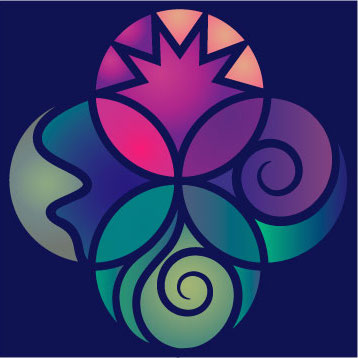Wave of care
/My patient, a tourist from China, was in a great deal of pain. She’d been brought to our clinic by ambulance after an accident. Her husband seemed calm but as we prepared for the ‘procedure’ – a word doctors use for something sometimes horribly painful, perhaps eventually curative – I noticed him watching my hands keenly as if willing some kind of healing into them.
Having to witness a loved one in pain is a rich learning experience I would not wish on anyone. A person can exhaust herself completely in the sub- or semi-conscious effort to heal the loved one with the force of their love. Does it ever work? It seems to work often enough that we keep trying. Even when we know that this body, which we love so much, is separate from our own, that only it can heal itself.
But that’s part of love, isn’t it? Blending your energy and your life with another to make you both stronger? Wanting peace and wholeness for them, while knowing it’s not really any of your business? For myself, I have learned to surrender, and accept my loved one’s suffering – for a little while at least. It’s a surrender that can be life-saving – too many caregivers lose sight of themselves. But an intermittent surrender can help you re-double the caring.
Nowhere is this situation more confounding than with our children. Once our babies look at us with their deep mysterious eyes, we do not have a choice. Astounded by their blind trust in us, we know that we will defend them with everything we have. And then your child gets sick for the first time. Nothing quite prepares you for this. My son developed a high fever (rolling eyes and all) at four months old, when his father and I were travelling with him in Viet Nam. Of course I thought it was our punishment for adventurous living. It was hard to know how this child would get better. But get better he did, bless his robust heart, with the help of Viet Namese antibiotics and sugary tea on a spoon and the loving care of a cadre of hotel staff. He not only got better, he bloomed.
I learned so much from my child every time he got sick. The knowledge I gained from the illnesses and disabilities of people I love and have loved remains the silk ribbon that runs through my medical practice. The experience I gained there is the well-spring of my deep-rooted faith in people’s ability to heal – even in tiny ways, even when they are still living with sickness.
I was born into a big, loving clan on mum’s and dad’s sides. Some of those I loved were already chronically ill or painfully disabled when I arrived. I’m sure my little child’s hands were able to make them feel better. Isn’t that one of the reasons most of us have children, to help us heal? Those same healing children will get very annoyed by that role by the time they’re 13 or 23. But in the meantime, a new little person gives us faith that the world is good and that we are not so bad ourselves.
There are other sources of healing too. As an alienated adolescent (who would rather do anything but look after – or even look at – sick people and their problems), I stared into the waves at the beach a lot. I knew there was something there for me, if I just kept looking.
Now, in my maturity, I can see what I was looking for in the waves. Waves come towards the coast, swelling, cresting, curling and crashing – inevitably and repeatedly. I can feel myself moving with it. Everything moves, everything changes – that I can have faith in.
Back in my desert clinic, far from the roaring saltwater of my coastal childhood, I used simple technology with medicines to relieve my patient’s pain. As she slept, her husband, so far from home, rewarded me with a smile of pure relief. Sometimes the right chemical combination in a clean syringe can heal two people in one elegant shot.
Thumbnail pic of the wave from Maori Bay, New Zealand by Tim Marshall



